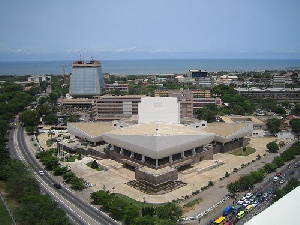As part of a number of recommendations presented to the Presidency by Constitutional Review Implementation Committee (CRIC), Ghana would soon have two separate capitals.
One will be the economic capital and another, the political capitals, as is the case in some neighboring countries like Nigeria and Ivory Coast.
The capital of Ghana was transferred from Cape Coast to Accra more than 130 years ago. Since then, land of the Gas has doubled as the capital city and the seat of government.
With disclosure of the CRIC, speculations are rife that Kumasi would be the economic capital while Accra would assume the status of political capital.
Additional recommendations presented to the president were for a seamless flow of information between the offices of the President and Vice President to ensure that the Vice President could step into the shoes of the President whenever necessary or required by law.
Another was for the appointment if the chairperson of the Council of State, who is expected to be elected by members of the council without nomination from the president, as, is currently the case.
The Chairman of the Commission, Prof. E. V. O. Dankwa, said a system has been set up to coordinate the schedules of the President and Vice President for a smooth working relationship.
“The Vice President holds regular meetings with key officials of the presidency. He also attends regular security briefings to keep him abreast with security issues,” he added.
He also stated that due to the experience in Venezuela regarding the health of Hugo Chavez, the constitutional provision to address the situation where an elected president could not be sworn into office due to ill health.
He noted that the attention of the Chief Justice has been drawn to some recommendations to the judiciary. These include the institution of administrative mechanisms by the Chief Justice to prioritize the hearing of disputes arising from Presidential and Parliamentary elections over the normal court schedules.
“A response to the recommendation is evidence by the attention given to the petition on the election of the President, where four days were assigned to the hearing while one day was devoted to all other cases before the Supreme Court,” he explained.
Prof. Dankwa said the creation by the Chief Justice of a division of the High Court to solely handle electoral disputes for the effective and prompt resolution of electoral disputes has been recommended by the Commission.
General News of Monday, 5 August 2013
Source: The Independent Newspaper
Ghana to have another capital city
Entertainment












